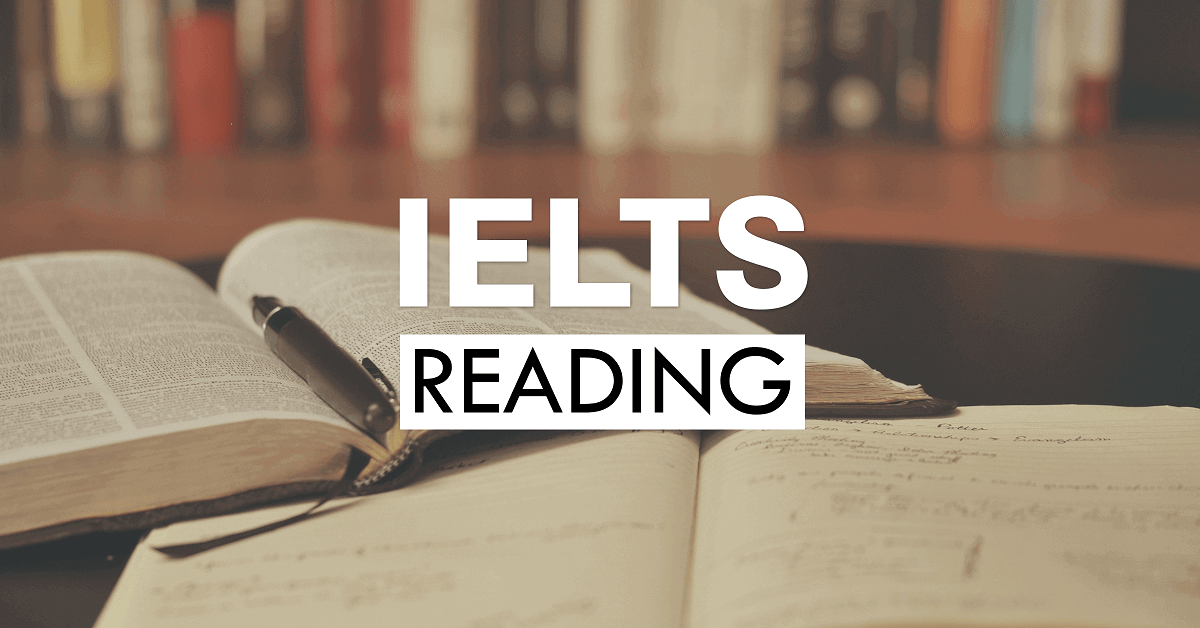The IELTS Reading test assesses candidates’ ability to comprehend written texts in English. It consists of three sections with various question types, such as multiple-choice, matching, and True/False/Not Given, designed to evaluate reading skills and comprehension. Test-takers must efficiently manage time and effectively skim and scan passages to locate information and answer questions accurately.
There is a difference between IELTS academics and GT reading.
If you are taking IELTS general, you have to read passages that are similar to newspapers, advertisements, handbooks and notices. Whereas, if you are taking IELTS academics, you will have to read passages that are similar to newspapers, books, journals and magazines. So, the academic test will use vocabulary and sentence structures, therefore, it is slightly more complex than the general test.
TYPES OF QUESTIONS
In the IELTS Reading test, there are various types of questions that assess different reading skills and comprehension abilities. Some common types of questions include:
- Multiple-Choice Questions: Test-takers are presented with a question and a list of options. They need to choose the correct answer from the provided options.
- True/False/Not Given (TFNG) Questions: Candidates need to determine whether statements given in the passage are true, false, or if the information is not mentioned in the text.
- Matching Headings or Information: Test-takers match headings or information to specific paragraphs or sections in the passage.
- Sentence Completion: Candidates complete sentences using words or phrases from the passage.
- Summary or Note Completion: Test-takers complete a summary or notes using information from the passage.
- Matching Sentence Endings: Candidates match sentence endings to the corresponding beginnings in the passage.
- Diagram or Flowchart Completion: Test-takers complete a diagram or flowchart using information from the passage.
- Yes/No/Not Given Questions: Candidates need to determine whether specific statements in the question are true, false, or if the information is not mentioned in the text.
These question types assess different aspects of reading skills, such as locating information, identifying main ideas, understanding the writer’s opinion or purpose, and making inferences based on the given text. It is essential for test-takers to familiarize themselves with these question types and practice answering them to perform well in the IELTS Reading test.
Reading tips for IELTS academic and general
- Time Management: The IELTS Reading test is time-bound, so it’s crucial to manage your time effectively. Allocate a specific time for each passage and stick to it to ensure you have enough time for all questions.
- Skim and Scan: Instead of reading every word, quickly skim through the passage to get a general idea of the content. Then, scan the text to find specific information related to the questions.
- Read the Instructions Carefully: Understand the requirements of each question type before attempting to answer them. Pay attention to keywords in the question and look for matching information in the passage.
- Focus on Keywords: Keywords are vital in locating answers. They often hold essential information and can guide you to the correct section of the text.
- Predict Answers: Before reading the options or proceeding with the questions, try to predict the answer based on your understanding of the passage. This can help you identify the correct response more efficiently.
- Be Aware of Negative Wording: Watch out for negative words like “not,” “never,” or “neither” in questions, as they can change the meaning of statements in the passage.
- Don’t Leave Blanks: In the IELTS Reading test, there is no penalty for incorrect answers. If you are unsure, make an educated guess rather than leaving any question unanswered.
- Practice Regularly: Familiarize yourself with different question types by practicing with past IELTS Reading papers. This will help you get used to the format and improve your speed and accuracy.
- Improve Vocabulary: Enhance your vocabulary to better understand the passages and answer questions effectively. Learn synonyms, antonyms, and context-based word meanings.
- Focus on Reading Skills: Regularly read English articles, newspapers, and books to improve your reading skills and comprehension abilities. This will also help you become more comfortable with different writing styles and topics.



